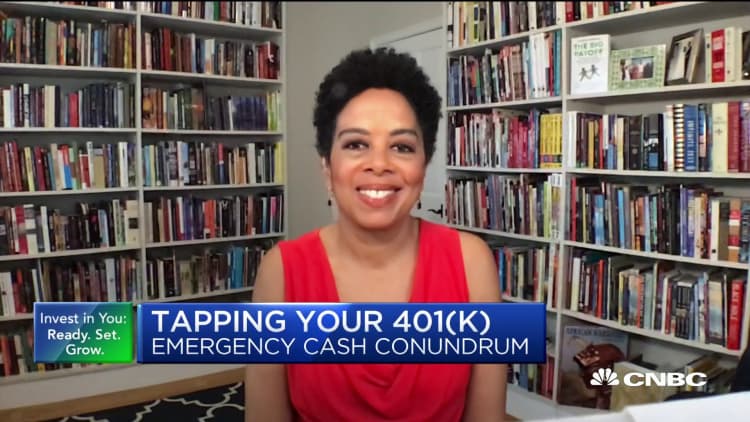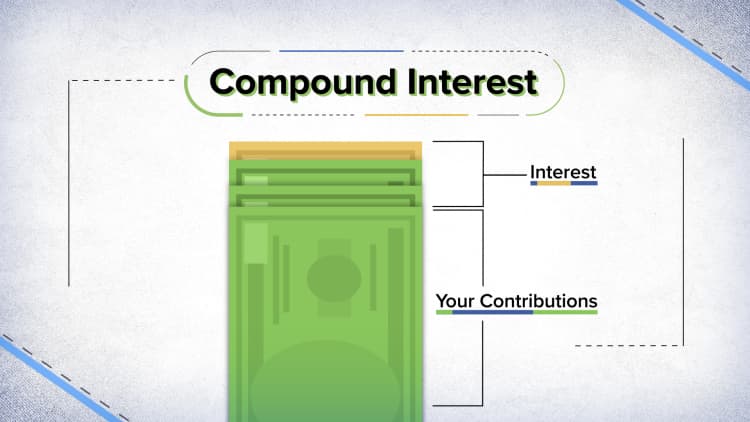
With many states pausing or rolling back reopening plans and shutting down businesses again, consumers are continuing to spend less money — and that could potentially have an impact on retirement savings.
A new survey by ING found that 39% of men and 47% of women in the U.S. report they are spending less during the coronavirus pandemic than they did before the crisis. And more than half of Americans ages 55 to 64 — those closest to retirement age — say their spending has gone down.
Cutting back on spending could translate into a nice savings boost over the long term, financial experts say. "This is an opportunity to rethink your needs and wants, reprioritize your expenses and plan better for the future," said certified financial planner and author Carrie Schwab-Pomerantz, president of the Charles Schwab Foundation. "Put what you don't spend on today's extras toward the future, whether that's your emergency fund, retirement or a child's education," she said.
It's not only "extras" that consumers are doing without these days. In the "homebody economy," staying at home and working from home has forced many Americans to adopt new habits, and some regular expenses have decreased or been eliminated.
According to a new survey by McKinsey & Co., most Americans believe the impact of the Covid-19 crisis on their daily routines and personal finances will last for many more months.
The report found more than one third of Americans plan to leave home only for shopping and socializing. Over 50% of those surveyed are still worried about using shared services, such as public transportation, airplane travel and ride sharing. And more than half plan to stick with at-home entertainment activities, like esports and online gaming, instead of going out.
Growing your 'Covid savings'
As new habits impact spending, the result could lead to big savings for disciplined savers. Yet despite improved spending habits, the ING survey found that only 38% of men and 32% of women in the U.S. say they now "save more" in the pandemic.
Boomers, the age group that has the shortest time horizon to put their savings to work, are the worst savers. Only 24% of those ages 55 to 64 are saving more now than they did before this health crisis, compared to 46% of 25- to 34-year-olds and 46% of 35- to 44-year-olds, the ING report found.

Many boomers may not realize how much putting a little money away can still really add up. "Small decisions can have a big impact. Boomers have been forced to adapt to technology with Covid. They're streaming more instead of going to movies. Taking free online classes instead of going to the gym. Making coffee at home," said Rhian Horgan, founder and CEO of Silvur, a retirement savings app designed for this age group. "A lot of small changes boomers have made have forced them to cut their discretionary spending, and they intend to continue these habits."
Nearly half of boomers (48%) have reduced their spending by up to $500 a month during the pandemic, compared to 53% of Gen X consumers and 62% of millennials, according to Silvur's survey of more than 1,000 consumers. Allocating this money into a savings account could result in a sizable nest egg.
Even just putting away half of that amount could have a powerful impact on long-term savings. For a 50-year-old, $250 saved every month — earning 5% interest a year — could grow to almost $100,000 by the time you're 70. If you start even younger, say at 40, $250 in monthly savings could grow to $200,000 over the next 30 years. And at 25, saving that much each month could result in over $480,000 in retirement savings by the time you're 70.

SIGN UP: Money 101 is an 8-week learning course to financial freedom, delivered weekly to your inbox.
CHECK OUT: I've been a career coach for 20 years. Here is my best advice for job seekers via Grow with Acorns+CNBC.
Disclosure: NBCUniversal and Comcast Ventures are investors in Acorns.






